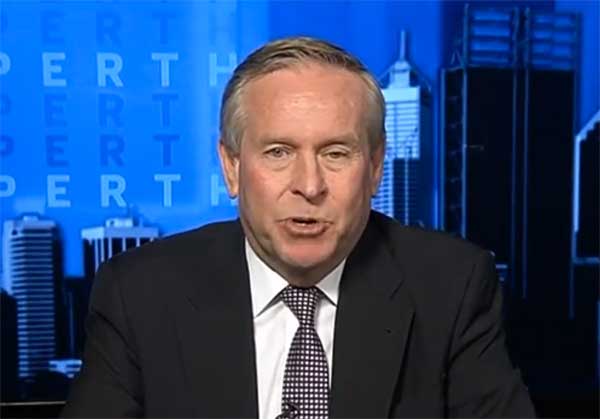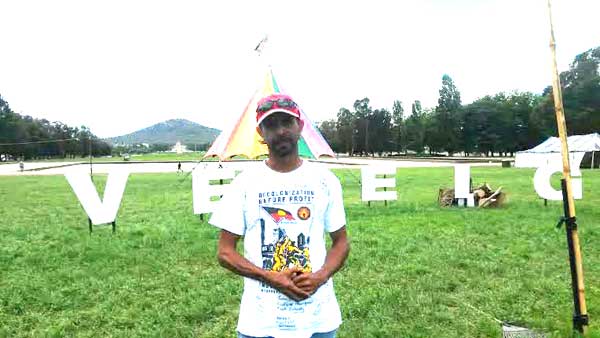The family of Julieka Dhu, a 22-year-old Yamitji woman who died in horrendous pain whilst incarcerated in South Hedland last year, says a personal commitment from the West Australian Premier to lower deaths in custody rates does not sit well with his proposal to shut down up to 120 remote Aboriginal communities.
Ms Dhu died on August 4 of unknown medical complications after being jailed for unpaid parking fines.
She was taken to the Hedland Health Campus twice while in excruciating pain, but was deemed fit to return to the lock up. She passed away within three days of being arrested, after being sent to the campus a final time.
Western Australia has the highest Indigenous incarceration rate on earth, and jails black males at a rate more than eight times greater than South Africa did during the dying days of Apartheid.
Six months on, the Dhu family have not received an interim autopsy, have had their request for an independent inquiry knocked back, and there is no word on when a coronial inquest will be set, although New Matilda understands the police and health departments have handed reports to the coroner.
At a national day of action held in October last year, the family succeeded in drawing out Premier Colin Barnett and his Corrections Minister Joe Francis. Faced with the distraught relatives of Ms Dhu, Mr Barnett made a personal commitment to lower deaths in custody.

Earlier this week, he told New Matilda in a statement he had begun the first steps of fulfilling the commitment, by setting up a review on black deaths in custody that would inform government.
He said it was a “serious and complex issue” that would not be solved overnight.
“Following the tragic death of Ms Dhu in August, I made a personal commitment to try and prevent Aboriginal deaths in custody and reduce Aboriginal incarceration rates,” he said in a statement to New Matilda.
“As a result a team within the Department of the Premier and Cabinet comprising representatives from the Department of Corrective Services, WA Police and the Department of Aboriginal affairs is reviewing deaths in custody and the high representation of Aboriginal people in Western Australia’s prison system.
“The team is currently examining all available data and will recommend short and long term policy responses for the government to consider.”
He said there would also be consultation.
But it’s little consolation to Ms Dhu’s family, who six months after her death are still “shattered” and waiting answers.
Ms Dhu’s uncle Shaun Harris, who has been travelling Australia trying to raise awareness around his niece’s death, feels the commitment is disingenuous.
He told New Matilda from the Aboriginal Tent Embassy in Canberra he did not trust Mr Barnett would keep his commitment in light of other policy positions – like his government’s proposals to shut down up to 120 remote Aboriginal communities.
“The crime rate will go up, because there is going to be more homelessness. People are going to have to move onto the streets, going to have to go into crime to pay for food, they won’t be able to pay for their medication, and it will put a strain on the health system,” Mr Harris told New Matilda.
“They won’t be able to pay to go to school.”
Last year, the Commonwealth signed an agreement with the WA government handing over municipal and infrastructure services in remote communities.
At a press conference yesterday, Mr Barnett again said that many of the communities were “unviable”.

But Mr Harris says the Indigenous incarceration rates will not lower anytime soon if communities are shut down and residents are moved into bigger centers.
“That’s pathetic. They say 15,000 (will be affected). If they say 15,000 it means 20,000 that’s going to be homeless. And where do they go? In towns and the city streets they will be homeless.”
And a review into deaths in custody still does not bring justice for Julieka.
“The way they treated her and deprived her of her liberty… all of them, “ he says.
“There was two or three days she was in lock up – three days’ worth of shifts, how many police per shift… and they all treated her with the same deprivation and degradation,” Mr Harris says.
“Nothing’s changed and nothing is going to change in a hurry cause they want to keep killing us… the system is working the way it’s meant to be working, in their favour, not ours.
“Systematic racism has to be addressed through all levels – the judicial system, through the health system, the government and the end of education system.”
Donate To New Matilda
New Matilda is a small, independent media outlet. We survive through reader contributions, and never losing a lawsuit. If you got something from this article, giving something back helps us to continue speaking truth to power. Every little bit counts.



